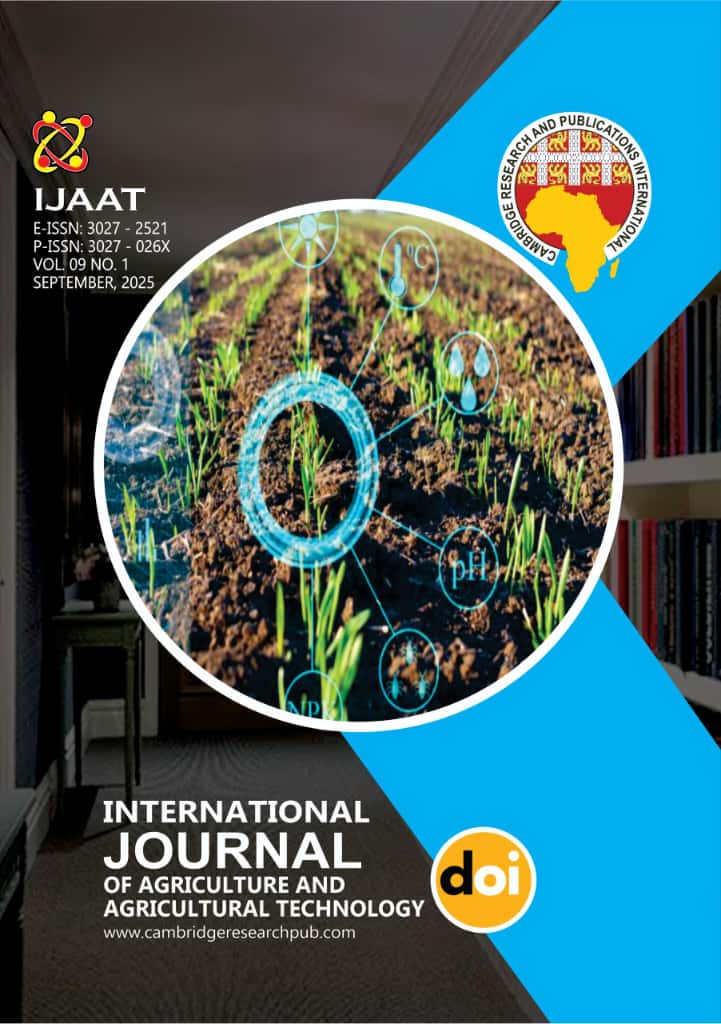ECOLOGICAL UTILITY STATUS OF ETHNOBOTANICAL SPECIES IN AN INTEGRATED FARMING SYSTEM IN BAUCHI STATE
Main Article Content
Abstract
With an aid of validated copies of structured questionnaire, reasons for the adoption of ethnobotanical cure, methods of herbal medicine preparation, threats to the survival of medicinal plants, level of involvement of respondents in regeneration of medicinal plants in the past and intention to partake in future, and ecological status of ethno medicinal plant species in Bauchi State, Nigeria were examined. Out of the twenty Local Government Areas (LGAs) of Bauchi State, six were randomly selected using stratified random sampling technique in which the state was stratified according to the prevailing three ecological zones which include: Northern Guinea Savannah, Sudan Savannah and Sahel Savannah. The LGAs selected were Toro and Bogoro from Northern Guinea Savannah, Alkaleri and Warji from Sudan Savannah and, Itas/Gadau and Dambam from Sahel Savannah. The study reveals that herbal medicine is being used to cure human and animal health challenges because of its availability affordability, low cost, multiple values, minimum side effect and simple to prepare. The survey also reveals that traditionally herbal medicines are being prepared by crushing, powdering, wetting, and grinding. The study shows that flood, erosion, drought, over grazing, fuel wood collection and farm expansion are threats to the survival of ethno-botanical plant species in Bauchi state and the respondents have never participated in regeneration exercise involving medicinal plants, but indicated their interest to participate in future for environmental rejuvenation and sustenance. The results also shows an ecological ranking of the medicinal plants to be 48percent rare, 28.33 percent occasional, 18.33 percent frequent, 3.33 percent abundant and only 1.67 percent very abundant in the study area. Sensitization of the general populace on the need to plant and take care of the ethno-botanical trees for medicinal and environmental sustenance and the need for sustained utilization of floral resources were recommended among others.
Downloads
Article Details
Issue
Section

This work is licensed under a Creative Commons Attribution 4.0 International License.




